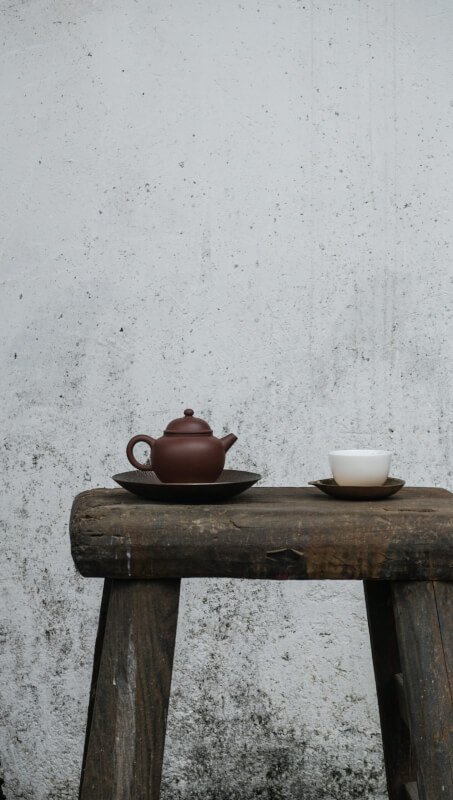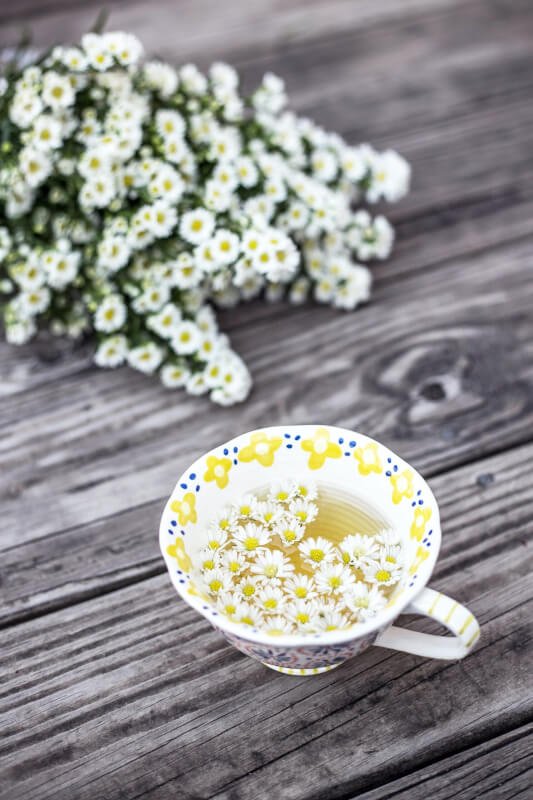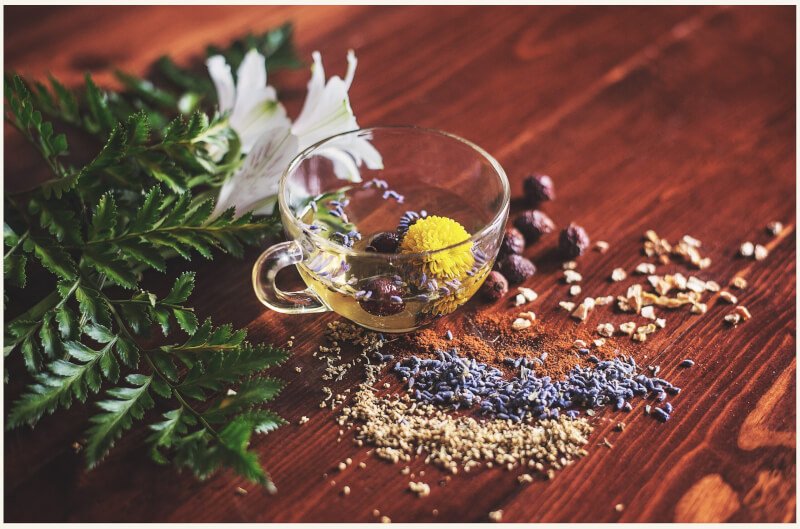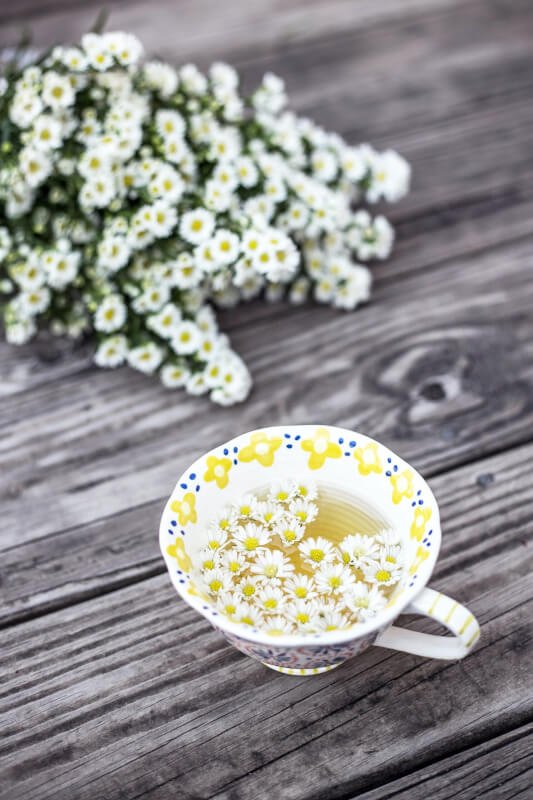You love indulging in the finest specialty teas, with their unique flavors and aromas that transport you to another world. But how can you ensure that your teas stay fresh and vibrant for as long as possible? In this article, you will discover effective tips and tricks on storing specialty tea to maintain its freshness, so that every sip is as delightful and invigorating as the first. From choosing the right containers to understanding the ideal storage conditions, you will find everything you need to know to savor the exquisite flavors of your favorite teas for months to come.

Choosing the Right Container
When it comes to storing specialty tea, the choice of container plays a crucial role in maintaining its freshness and flavor. Airtight containers are highly recommended as they prevent air from entering and compromising the quality of the tea. Opt for containers that provide a tight seal to ensure that no air can get in or out. This will help preserve the aroma and taste of the tea over time.
Opaque containers are another excellent choice for storing specialty tea. By selecting containers that are not transparent, you prevent light from reaching the tea leaves. This is important because exposure to light can cause tea to degrade and lose its flavor. Opaque containers offer an added layer of protection against light, allowing you to enjoy the full flavor of your tea for a longer duration.
For those who prefer glass containers, it is essential to choose ones with airtight lids. Glass containers provide a clear view of the tea inside, allowing you to appreciate its appearance. However, glass containers that do not have airtight seals may still allow air to enter, reducing the shelf life of the tea. By opting for glass containers with airtight lids, you can enjoy the benefits of a clear view while ensuring that your tea remains fresh.
On the other hand, it is best to avoid plastic containers when storing specialty tea. Plastic containers may release chemicals over time, which can taint the flavor of the tea. Additionally, plastic can be more porous than other materials, allowing air to seep in and affect the quality of the tea. It is best to choose alternative container options to ensure that your specialty tea remains unaffected by the packaging material.
Double-lidded tins are an excellent choice for those who want extra protection for their specialty tea. These tins have two layers of lids, providing enhanced preservation of the tea. The first lid seals the tin, while the second lid provides an extra layer of security. This double-lidded feature helps keep the tea fresh by minimizing air exposure and maintaining optimal conditions within the container.
Optimal Storage Conditions
In addition to choosing the right container, it is crucial to store specialty tea under optimal conditions. By following these guidelines, you can maximize the freshness and longevity of your tea.
First and foremost, it is essential to keep specialty tea away from moisture. Tea leaves readily absorb moisture, which can lead to the growth of mold and the loss of flavor. To prevent this, store the tea in a dry environment and avoid exposing it to any source of humidity.
Direct sunlight should also be avoided when storing specialty tea. Sunlight can cause the tea leaves to deteriorate quickly, resulting in a loss of flavor and aroma. Instead, opt for a cool and dark place for tea storage, such as a pantry or a cabinet away from windows. This will help protect the tea from the damaging effects of sunlight while preserving its quality.
Strong odors can seep into tea leaves and compromise their flavor. Therefore, it is crucial to store specialty tea away from spices and strong-flavored foods. Tea leaves are highly sensitive and can absorb surrounding scents, altering their taste. By storing your tea in a separate container away from other strong-smelling substances, you can ensure that your tea retains its original flavors.
Maintaining a stable temperature is essential for tea storage. Fluctuations in temperature can cause the tea leaves to expand and contract, potentially compromising their quality. Therefore, store your specialty tea in an area with a consistent temperature. Avoid placing it near heating vents, as exposure to hot air can be detrimental to tea leaves. Instead, choose a spot with a moderate temperature that remains constant throughout the day.
Lastly, it is important to store specialty tea away from spices and strong flavors. Tea leaves are highly absorbent, and they can easily pick up odors from their surroundings. By keeping tea separate from spices and strongly-flavored foods, you can ensure that its pure flavor is preserved.

Storage Duration
To maintain the freshness of specialty tea, it is crucial to consider its storage duration. Different types of tea have varying shelf lives, and it is important to follow the recommended guidelines for each variety. Generally, specialty teas have a shelf life ranging from several months to a few years, depending on the oxidation level and processing methods.
Oxidation is a crucial factor in determining the storage duration of tea. Less oxidized teas, such as green and white teas, are more delicate and have a shorter shelf life. On the other hand, highly oxidized teas like black and oolong teas can be stored for a longer duration. It is essential to take into account the oxidation level of your specialty tea and adjust your storage practices accordingly.
Keeping track of the purchase date is also important when storing specialty tea. By noting down the date of purchase, you can ensure that you consume the tea within its recommended storage duration. This practice helps avoid the consumption of old or expired tea, which may have a compromised taste and aroma.
Ultimately, it is essential to dispose of old or expired tea to maintain the quality of your specialty tea collection. As time passes, the tea leaves may lose their flavor and freshness. By regularly assessing your tea inventory and discarding stale or low-quality tea, you can ensure that you only consume the best specialty teas and enjoy their optimal flavors.
Proper Tea Packaging
The packaging of specialty tea plays a significant role in maintaining its freshness and flavor. By following these tips for proper tea packaging, you can ensure that your tea remains in optimal condition for an extended period.
When purchasing specialty tea, it is best to buy in small quantities. This ensures that you consume the tea while it is still fresh and allows you to experience its full flavor. Purchasing smaller quantities also reduces the chances of tea going stale or losing its aroma before you can finish it.
Consider choosing individually sealed tea packets for ultimate freshness. These packets provide an additional layer of protection against air, light, and moisture. Individually sealed tea packets also offer the convenience of portioned servings, allowing you to enjoy a fresh cup of tea each time you open a new packet.
Vacuum-sealed packaging is an excellent option for long-term storage of specialty tea. This packaging method removes the air from the container, preventing oxidation and maintaining the tea’s freshness. Vacuum-sealed packages are particularly beneficial for high-quality whole leaf teas, as they can preserve the delicate flavors and aromas of the tea for an extended period.
Re-sealable bags with one-way valves are also a popular choice for tea packaging. These bags allow excess air to escape while preventing air from entering the bag. The one-way valve ensures that only air can come out, while keeping moisture and oxygen from seeping in. This type of packaging helps preserve the flavor and aroma of the tea while providing convenient resealing for repeated use.
It is important to avoid excessive handling of tea leaves when packaging them. Air exposure and excessive handling can cause the tea to undergo oxidization and lose its freshness. To prevent this, handle the tea leaves gently and avoid touching them with bare hands. Instead, use clean utensils to transfer the tea into the packaging, ensuring minimal contact with the tea leaves.

Avoiding Contamination
Maintaining proper hygiene and avoiding contamination is crucial when it comes to storing specialty tea. By following these guidelines, you can ensure that your tea remains free from outside contamination and retains its original flavors.
Always wash your hands thoroughly before handling tea. This helps eliminate any dirt, oils, or lingering scents that could transfer to the tea leaves. Clean hands ensure that the tea remains pure and uncontaminated, allowing you to enjoy its true flavors.
Similarly, it is important to use clean utensils when handling specialty tea. Ensure that your tea infusers, tea spoons, or any other utensils are free from dirt or residue before use. This prevents any unwanted flavors or scents from being introduced to the tea, preserving its taste and aroma.
To prevent cross-contamination of flavors, it is best to dedicate specific utensils for different types of tea. For example, if you have a variety of teas like green, black, and herbal, it is advisable to use separate infusers or utensils for each type. This prevents any mingling of flavors and ensures that each tea maintains its unique characteristics.
Storage containers should always be clean and dry before storing specialty tea. Any residue or moisture left in the container can affect the taste and quality of the tea. Ensure that the containers are thoroughly cleaned and dried before transferring the tea leaves. This ensures that the tea remains free from any contaminants and maintains its freshness.
Lastly, it is crucial to avoid storing specialty tea near chemicals or cleaning agents. Strong smells or substances can easily transfer their scent to the tea leaves, compromising its taste. Store your tea away from areas where chemicals or cleaning agents are stored to prevent any unwanted odors from seeping into the tea.
Freezing Specialty Tea
While freezing tea may not be a common practice, it can be beneficial for specialty tea if done correctly. Freezing can help prolong the shelf life of tea and maintain its freshness for an extended period.
However, before freezing tea, it is essential to understand the risks and benefits associated with this storage method. Freezing tea can potentially alter its flavor and aroma, and it may not be suitable for all types of tea. It is advisable to freeze only high-quality whole leaf teas, as they tend to fare better in freezing conditions.
To freeze tea effectively, ensure that the tea leaves are stored in airtight packaging. This prevents moisture and freezer odors from affecting the quality of the tea. Vacuum-sealed bags or airtight containers are ideal for freezing tea, as they provide an excellent seal and protect the tea from external factors.
Before using frozen tea, it is crucial to thaw it and bring it to room temperature. Sudden temperature changes can shock the tea leaves and impact their flavor. Allow the tea to thaw naturally, and avoid using it until it has reached room temperature. This helps preserve the delicate flavors and aromas of the tea.
When storing frozen tea, it is important to keep it separate from other items in the freezer. This prevents any cross-contamination of flavors and ensures that the tea remains uncontaminated. By keeping the frozen tea in a designated section of the freezer, you can maintain its individual taste and prevent any unwanted blending with other freezer items.
Labeling and Identification
Effective labeling and identification of tea containers are crucial for maintaining a well-organized tea collection. By following these guidelines, you can keep track of your teas easily and ensure that you make the most of your specialty tea selection.
Label your tea containers with the name and purchase date of the tea. This helps you identify the specific type of tea and ensures that you consume it within its recommended shelf life. By having the purchase date readily available, you can prioritize consuming teas that are closer to their recommended expiration date, minimizing any waste.
Including additional information such as the tea type, origin, and brewing instructions can be beneficial for labeling tea containers. This information helps you understand the specific features of each tea and guides you in preparing it correctly. By including brewing instructions, you can ensure that you consistently brew your tea to perfection, enhancing your overall tea-drinking experience.
Choose moisture-resistant labels or tags for tea containers. Specialty tea is sensitive to moisture, and labels that are not waterproof can deteriorate and become illegible over time. Moisture-resistant labels ensure that the information on the containers remains visible, allowing you to identify the tea easily and maintain an organized tea collection.
Storing tea containers in a visually accessible manner helps save time and effort when selecting a tea to brew. Arrange your tea collection in a way that allows you to see the labels clearly without having to search through multiple containers. This way, you can quickly locate the tea you desire and enjoy a hassle-free tea-drinking experience.
To ensure easy retrieval, organize your tea inventory systematically. You can arrange your teas alphabetically, by type, or even by flavor profile. Find a system that works best for you and maintain consistency in organizing your tea collection. This ensures that you can effortlessly find and access any tea you are in the mood for, adding convenience and enjoyment to your tea-drinking routine.
Beware of Air, Light, and Moisture
Air, light, and moisture are three factors that can significantly affect the freshness and quality of specialty tea. By following these guidelines, you can protect your tea from these elements and ensure its longevity.
Minimizing exposure to air is crucial for tea storage. Oxygen can cause tea to undergo oxidation, resulting in a loss of flavor and aroma. Store your tea in airtight containers to limit its contact with air. By sealing the tea in tightly, you create an environment that minimizes oxygen exposure and helps preserve the tea’s freshness.
Clear glass containers may be aesthetically pleasing, but they can be detrimental to tea storage. Clear glass allows light to penetrate the container, leading to faster tea degradation. It is best to avoid storing tea in clear glass containers and instead opt for opaque or dark containers. This ensures that your tea remains protected from light exposure, maintaining its quality and flavor.
Exposure to moisture and humidity can compromise the freshness and taste of specialty tea. Be sure to store your tea away from areas prone to moisture, such as the kitchen sink or in close proximity to the refrigerator. Consider using moisture-absorbing packets in the storage containers, as they help control humidity levels and prevent moisture from affecting the tea leaves.
Whenever possible, keep your tea containers tightly sealed. Loose or damaged seals can allow air, light, and moisture to enter the container, affecting the quality of the tea. Regularly check the seals on your containers to ensure that they are intact and replace them if necessary. By maintaining a tight seal, you can better protect the tea and maintain its optimal freshness.
Avoiding Temperature Extremes
Extreme temperatures can have a significant impact on the quality and flavor of specialty tea. By following these guidelines, you can protect your tea from temperature extremes and ensure its longevity.
Preventing exposure to extreme heat or cold is crucial for tea storage. High temperatures can accelerate the degradation process, causing the tea to lose its flavor and aroma rapidly. On the other hand, extremely low temperatures can cause moisture to condense on the tea leaves, potentially spoiling the tea. It is best to keep your specialty tea stored in an area with a moderate and stable temperature to maintain its freshness.
Avoid storing tea near kitchen appliances that generate heat. The close proximity to these appliances can expose the tea to higher temperatures, compromising its quality. Keep your tea storage area away from ovens, stovetops, and other heat-emitting appliances to prevent any unwanted temperature rise.
While refrigeration may seem like a logical way to preserve tea, it is best to avoid storing tea in the refrigerator. The fluctuating temperatures, humidity, and exposure to other strong-smelling foods in the refrigerator can negatively impact the tea’s flavors and aromas. It is best to store specialty tea in a cool and dark place outside the refrigerator for optimal results.
Maintaining a consistent temperature is essential for tea storage. Fluctuations in temperature can impact the flavor and quality of the tea, potentially accelerating the degradation process. Choose a storage location that maintains a stable temperature throughout the day and is not prone to sudden temperature changes. This ensures that your tea remains in the best possible condition.
Store specialty tea away from heating vents or areas with direct exposure to sunlight. These sources of heat can significantly raise the temperature of the tea storage area, potentially damaging the tea leaves and compromising their quality. By keeping your tea away from such heat sources, you can protect it from extreme temperatures and maintain its freshness.
Other Considerations
Apart from the aforementioned guidelines, there are a few additional considerations to keep in mind when it comes to storing specialty tea. By following these tips, you can further enhance the freshness and longevity of your tea collection.
Consulting tea suppliers for specific storage recommendations can be highly beneficial. Different types of tea may have unique storage requirements, and suppliers are often well-versed in the best practices for their products. By reaching out to tea suppliers, you can gain valuable insights and ensure that you are storing your specialty tea in the most optimal conditions.
Investing in a tea storage cabinet or chest can be a worthwhile investment for tea enthusiasts. These specialized storage solutions provide an environment specifically designed for tea, offering protection against air, light, and moisture. Tea storage cabinets or chests often come with separate compartments or containers, allowing you to organize and access your teas easily.
Don’t be afraid to experiment with different storage methods to find what works best for you. Each tea enthusiast has their preferences and may find unique solutions that suit their needs. By experimenting, you can discover the storage methods that best preserve the flavors and aromas of your specialty teas, enhancing your overall tea-drinking experience.
Regularly assess and discard stale or low-quality tea from your collection. As time passes, the flavor and aroma of tea may deteriorate, making it less enjoyable to drink. By periodically evaluating your tea inventory, you can identify teas that no longer meet your standards and make room for new, high-quality specialty teas.
Investing in high-quality specialty teas is crucial for optimal flavor and longevity. The quality of the tea leaves themselves plays a significant role in how well they can be stored. By selecting high-quality specialty teas, you not only ensure a better taste but also increase the chances of a longer shelf life. Premium teas are often processed and packaged in a way that maximizes their freshness and flavor, providing you with a superior tea-drinking experience.
In conclusion, storing specialty tea to maintain freshness requires careful consideration of the container, storage conditions, and packaging methods. By choosing the right container, such as airtight and opaque options, you can protect the tea from air and light exposure. Optimal storage conditions involve keeping the tea away from moisture and strong odors, as well as maintaining a stable temperature. Paying attention to the storage duration, proper tea packaging, and avoiding contamination further contributes to the tea’s freshness. Lastly, beware of factors like air, light, moisture, temperature extremes, and experiment with different storage methods. By following these guidelines and considering other tips, you can store specialty tea effectively, preserving its flavor, aroma, and freshness for an extended period.


